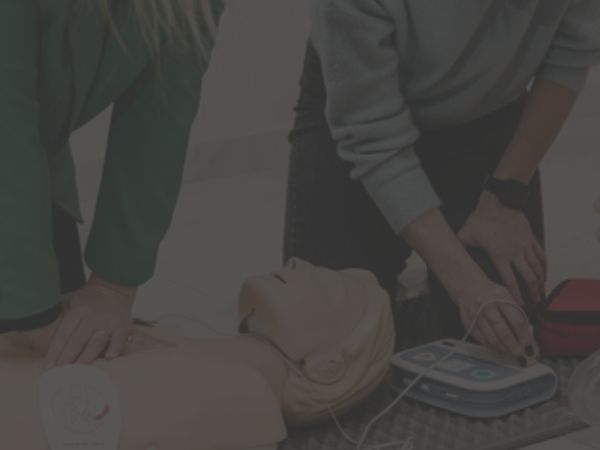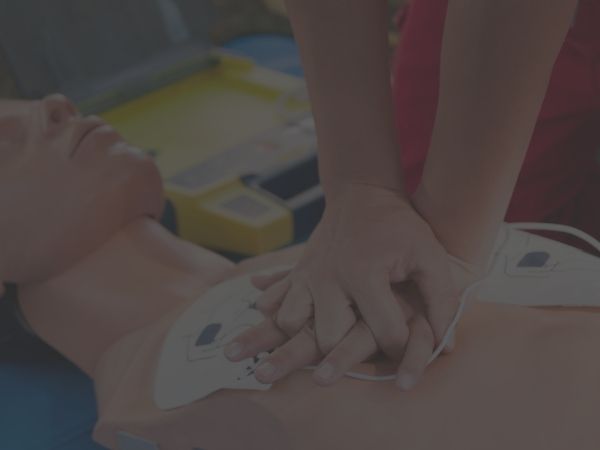Your cart is currently empty!
10 Tips To Succeed When Taking ACLS Online
Health care professionals respond to their fair share of cardiac arrest cases. According to the International Liaison Committee on Resuscitation, more than 209,000 people suffer in-hospital cardiac arrest (IHCA) annually. That’s nearly two out of five total cardiac arrests in the country. Unlike out-of-hospital cardiac arrest (OHCA), survival rates are higher at 24.8 percent, more than double the OHCA rate. The ability of professionals to respond with advanced life-saving measures, forming the components of Advanced Cardiac Life Support (ACLS), is responsible for the stark difference. As a result, more people are turning to ACLS Online Certification to save lives, but participation in ACLS online can be challenging.
Students must understand time management. They must spend time studying independently, and they must still manage to connect digital knowledge to the real world. To improve their chances of success, students should follow these 10 tips.
1. Take Advantage of Your Smartphone Calendar
 Your smartphone calendar is an invaluable resource for managing your time and preparation when completing an ACLS class. Instead of leaving course registration details in your inbox, consider using the calendar as a second resource.
Your smartphone calendar is an invaluable resource for managing your time and preparation when completing an ACLS class. Instead of leaving course registration details in your inbox, consider using the calendar as a second resource.
Schedule an “appointment” for when you plan to register for the class. Ensure the day is free from other obstacles that will distract your learning. Students should also think about taking a class that will not interfere with other responsibilities, including work and family. Even though the class may be conducted online, review the attendance requirements as well. In other words, are students required to log in at a set time, or do they have the ability to complete the course at their own pace?
Answering those questions are the first hurdles to overcome. Students opting to spread the course out over several days should also use the calendar to set aside time for study and class participation. After completing a module, schedule a review period of at least one hour. Depending on the length of the course, it may take several weeks to complete. In these instances, students must schedule a review period of at least two hours each week. This provides enough time to revisit key module questions and commit the information to memory, reports Back2College.com. Furthermore, students should use this period to take advantage of your notes and other resources as listed in tips two through 10.
2. Break the Course Into Major Sections
Another excellent way to improve memory recall is by breaking the course into major sections. This is really a subset of using your calendar. However, students must not make rash decisions when breaking apart course modules. Most online modules can be completed within a single sitting. Unfortunately, the stress of completing a class is not limited to simply going through the motions.
For example, staring at a computer screen without interruption can lead to eyestrain. According to the Mayo Clinic, eyestrain is the result when the eyes grow tired from intense use, and staring at a bright computer screen is a common cause of the condition. Although it is not routinely serious, eyestrain’s symptoms are life-impacting, including:
- Headache
- Watery and dry eyes
- Sore neck, shoulders and upper back
- Increased sensitivity to light
- Sore, tired or burning eyes
- Trouble concentrating
- Increased sleepiness
Moreover, repeat cases may lead to insomnia and increased susceptibility for injury in affected muscle groups, further contributing to problems completing work. The simplest ways to prevent eye strain are to adjust lighting, take breaks and limit screen time. In other words, breaking the course into sections will reduce your risk of eyestrain and improve concentration.
3. Use Cloud-Based Note-Taking Apps to Prepare for the Course
Cloud-based note-taking apps, including Evernote and Microsoft OneNote, are the next best way to improve your online course success.
Evernote allows users to add to-do lists, photos, web pages, audio and images across any device with the downloaded app. For students working with peers to complete coursework, comparable to an online study group, Evernote also makes it easy to share notes or notebooks across devices and peers.
The basic version is free to use, but a premium version is available. Premium subscriptions include up to 10 GB of monthly uploads, access to notes offline and additional features.
Microsoft OneNote is comparable to Evernote. It allows users to perform all the tasks of Evernote within a Microsoft-branded app, excluding the unique formatting features found in a desktop OneNote application. Speaking of the desktop application, Microsoft OneNote is available on any device, and those with an existing Microsoft Office subscription may be able to download OneNote for their mobile devices without incurring the premium service charge associated with other cloud-based apps.
4. Use Text-to-Speech Tools to Listen to the Course Materials in Advance
In today’s world, digital information is more valuable than printed text. Through the advancements in technology, every smartphone and device can use text-to-speech features to effectively listen to webpages, PDF documents, notes and more.
Premium services do exist that simply require a user to upload a file or URL, and an audible version is created and sent to the user. However, free services are abundant and exist within many popular apps, including Microsoft Office, Google Chrome and Edge. Even Android users can turn on text-to-speech by changing the settings within the Accessibility menu of their devices. Microsoft Office has a similar feature that can be enabled via the Options menu from the “File” menu.
Taking advantage of text-to-speech tools is a great way to review course materials when you do not necessarily feel like reading several pages of text. It also helps with eye strain too.
5. Download and Apply Study Guide Practice Questions to the Course Contents
Study guides continue to reign over the top ways to actually study course contents, but digital study guides carry the same advantages listed above, as well as those of traditional materials. Depending on the course provider, a digital study guide may be available for download.
Downloading the guide means you can review it without interrupting your favorite music stream or worrying about when you can find out the answers to those questions that pop into your mind. In addition, the study guide serves as a great way to organize your class, giving you a quick view of the course contents by module. As a result, students can even use a digital study guide to quickly copy and paste their planned modules into their personal calendars and more.
6. Participate in Drill-Like Scenarios Online to Test Your Knowledge
Online classes do have limitations. It is difficult to think about how you will apply the skills in-person after completing the course. Ultimately, an online class means you lose that in-person practice that accompanies a traditional ACLS course. However, the ACLS online world has changed the game again with simulations that let you put your skills to the test.
For instance, NHCPS ACLS Megacodes are timed scenarios based on the real environment when someone needs care. A simulation exists for V-Tach, Bradycardia, V-Fib, SVT, Stroke, PEA, and STEMI circumstances. The simulation runs in the same amount of time that would typically pass between the first contact with a patient and identifying or administering treatment. Therefore, they serve a clinical-like role in the course of study.
If a student misses a question, a pop-up indicates why the question was missed. Instead of spending time reading the response, move on to the next question in the simulation. This will prepare you to immediately recover when you make a mistake in the real world. Mistakes happen to the best of us, but by learning where you go wrong in the digital world, you can take steps to prepare and prevent them in the real world. In other words, you get to practice without the risk that it would place to someone suffering a real emergency.
For students that are highly motivated, they may even consider creating a homemade CPR manikin to further help with preparation. However, these manikins are usually limited to practicing chest compressions, opening the airway and administering rescue breaths.
7. Create Flashcards
Okay, this tip seems old-fashioned, but flashcards are still a great way to study when you don’t feel like reviewing block text or answering timed simulation questions. You can even use the note-taking apps mentioned earlier to create digital flashcards that will help you prepare as well. Of course, the value of making traditional flashcards from note cards should not be ignored.
When you take the time to copy a key point to a note card, you are actively engaged in the process. As you write each word and think about its meaning to the course, your mind organizes and stores the material. Thus, you are more likely to remember the information that simply reading it. Just remember to use the flashcards after you make them too.
8. Consider ACLS Pocket Notepads
With the rise of smartphones, the use of physical notepad can seem counterproductive. Yet, there are excellent pocket ACLS notepads available on Amazon that were designed for use by nurses and health care professionals. Even the International Liaison Committee on Resuscitation has a set of pocket ACLS reference cards listed on Amazon.
Depending on the quality of the notepad, you may be able to write other notes in ink and simply wipe them away with an alcohol swab. In fact, the ability to clean the cards often and without risking damage from alcohol makes these pocket notepads an excellent resource before, during and after taking ACLS online.
Students may also consider taking advantage of mobile apps that help with navigating the ACLS online algorithm when an emergency arises. Regardless of whether students choose to use a mobile app or a physical set of pocket notes, it is important that students stay atop the latest ACLS algorithm recommendations. The algorithm changes much faster than the renewal period for your ACLS Online Certification.
9. Take a Course in Tandem With Peers
When a person commits to taking a class alone, that person alone is responsible for completing modules and passing the final examination. In health care settings, failure to obtain your ACLS Certification could prevent you from other job opportunities or even result in suspension until attaining a passing score. While employment remains a strong motivation for completing an ACLS Online course, students have another resource at their disposal—their peers.
According to OxfordLearning.com, studying alone does offer benefits of fewer distractions, control over the learning environment and control over study schedules. However, working with peers allows for group discussion, continuously testing concepts among peers. This helps to clarify questions, and it encourages students to study and be accountable.
Obviously, a face-to-face study group may not be possible for some online courses, but students can still take advantage of Skype and FaceTime to interact while participating in an online course. So, those that need to complete a class for work should talk with their coworkers about signing for a course at the same time to take advantage of group-like studying too.
10. Complete an Online Practice Test
 The final tip is the easiest and oldest way to succeed. Students must take a practice test. A practice test is a comprehensive review of course materials that are highly similar in difficulty and complexity as the actual examination at the end of the class. While traditional practice tests were paper-based, an ACLS online practice test is much more engaging.
The final tip is the easiest and oldest way to succeed. Students must take a practice test. A practice test is a comprehensive review of course materials that are highly similar in difficulty and complexity as the actual examination at the end of the class. While traditional practice tests were paper-based, an ACLS online practice test is much more engaging.
Students have a time limit that cannot be altered. They answer each question, and at the end of the test, students can review their answers, as well as explanations for why their answers were incorrect or correct. Simply taking an extra test will help to reduce their risk of making the most common ACLS mistakes.
Make Your ACLS Course Successful by Applying These Tips Now
Taking an ACLS online course is a challenge. It requires students to connect digital concepts with the actions taken to save someone’s life when cardiac arrest strikes. There is no time for guessing what to do; health care professionals need to act immediately. Instead of simply hoping you remember the skills and key points from your ACLS online course, make sure you commit them to your long-term memory by taking advantage of the top 10 tips to succeed. They will do much more than help you pass the examination at the end of the course. They will empower you to save lives.
Do you have any online course preparation or participation tips that will help students succeed? Share them along with this article to social media now, and don’t forget to enroll in the life-saving skills course ACLS online.










I loved that you mentioned flashcards will help you to prepare for your ACLS test. My brother is thinking about how to prepare for his upcoming ACLS training exam, and we are looking for advice. I will let him know about your recommendations to help him prepare properly for his ACLS test.